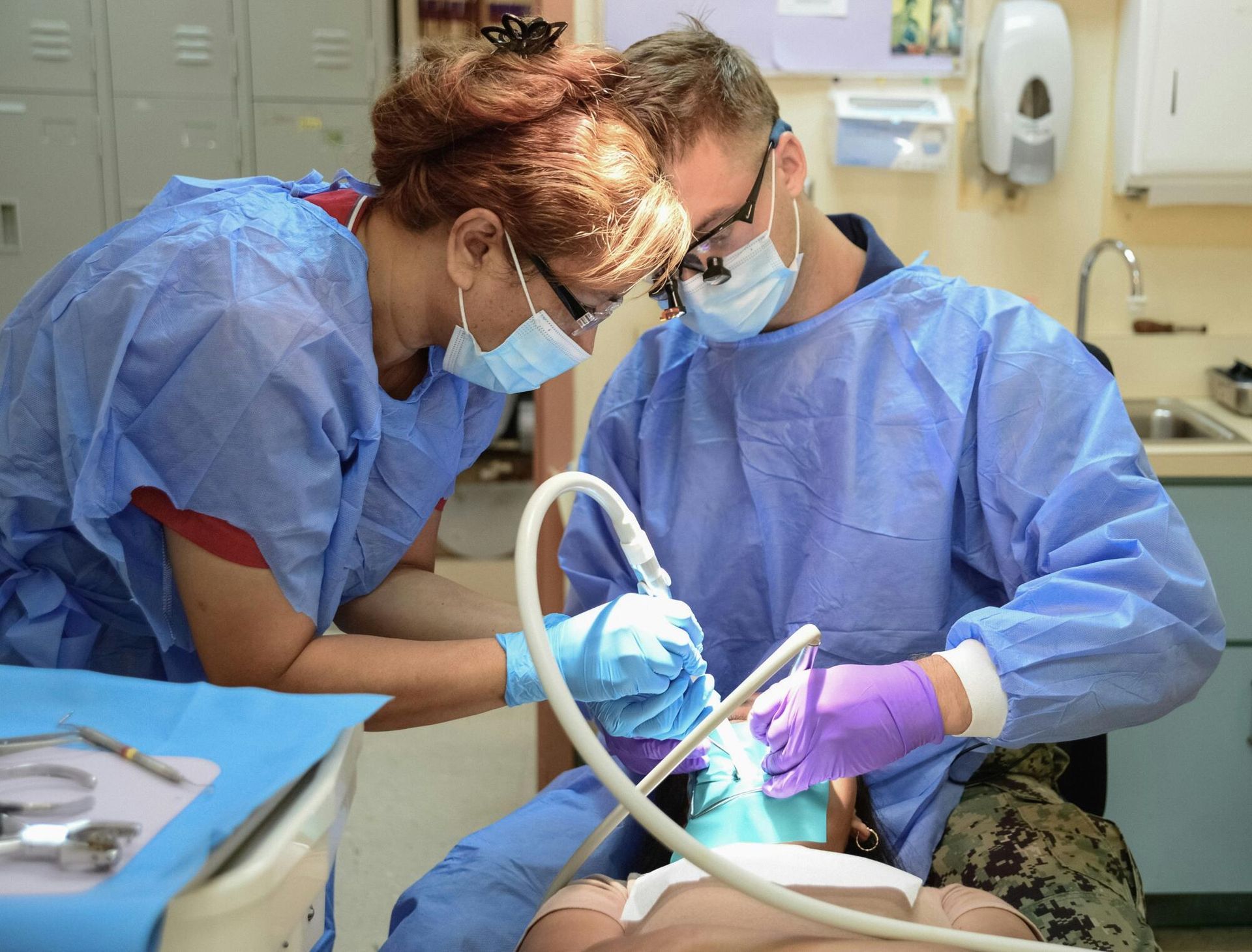TMD vs TMJ: What’s the Difference?
Both TMD and TMJ involve the temporomandibular joint. Yet, what's the difference between TMD vs TMJ? Find out in this article.

Experts estimate that there are more than 10 million Americans that suffer from temporomandibular disorder (TMD). This condition seems to be more common in women than men, but it can affect people of all ages.
If you've had pain in the area of your jaw joint or popping in your jaw, you may have found people referring to this disorder as TMJ as well as TMD.
What is the difference when you compare TMD vs TMJ?
Let's take a look at what you need to know.
What Are the Temporomandibular Joints?
There are two joints that connect your skull and your lower jaw. These are known as the temporomandibular joints (TMJ). These joints make it possible for your jaw to move as well as the joint movement that occurs in front of each of your ears.
The TM joints consist of the temporal bone which is the base and side of the skull and the mandible which is the lower jaw.
These joints are actually some of the most complicated joints in the entire human body. The mandible is able to move forward and back, side to side, and up and down because of these joints along with the help of a number of muscles.
Smooth muscle action can take place when the joints and the mandible are lined up in the proper formation. These types of smooth muscle actions include talking, chewing, swallowing, and yawning.
However, when these structures are not properly aligned it can lead to a number of problems.
What Is Temporomandibular Disorder?
Temperomandibular disorders (TMD) are conditions that have to do with the temporomandibular joints, jaw muscles, and nerves. Temporomandibular disorder can be brought on by any issue that gets in the way of this system from working together harmoniously.
TMD is classified by the National Institute of Dental and Craniofacial Research by the following:
-
Myofascial pain
-
Internal derangement of the joint
-
Degenerative joint disease
Myofascial pain occurs when there is pain or discomfort in the fascia or the muscles that are responsible for function in the jaw, neck, and shoulders. The fascia is a particular type of connective tissue that doesn't just cover your muscles but also your organs, bones, blood
vessels, and nerve fibers.
Internal derangement of the joint refers to either a displaced disk, dislocated jaw, or injury to the condyle. The disk that can get displaced in relation to TMD is the cushion of cartilage between the skull and the jaw bone. The condyle is the name given to the rounded end of the jaw bone.
Degenerative joint disease includes rheumatoid arthritis and osteoarthritis in the jaw joint.
It is possible for an individual to experience one or more of these conditions simultaneously.
TMD Vs. TMJ: What's the Difference?
The difference between TMD and TMJ is that TMJ refers to the joints that connect your jaw to your skull and TMD refers to disorders of these joints. However, it is not uncommon for people to use the term "TMJ" to describe temporomandibular disorders.
What Causes TMD?
It isn't always clear why a person develops TMD. It can sometimes result from excessive strain on the jaw joints as well as the muscles that take part in swallowing, chewing, and speech. Bruxism can cause this strain, which is when a person grinds or clenches their teeth habitually and involuntarily.
Another possible cause of TMD is trauma to the jaw, neck, or head. People can also experience TMD pain due to displacement of the jaw joint disks and arthritis.
Some other medical conditions can contribute to the pain of TMD. These include irritable bowel syndrome and fibromyalgia.
The National Institute of Dental and Craniofacial Research recently performed a study where they took a look at a number of different factors that might increase the risk an individual will develop chronic TMD. These included psychological, clinical, genetic, sensory, and nervous system factors.
What Are the Symptoms of TMD?
There are a number of common signs and symptoms that you can look out for if you're concerned that you have TMD. Some of these include:
-
Headaches
-
Jaw soreness or discomfort
-
Pain spreading behind the eyes, in the neck, shoulder, back, or face
-
Ringing in the ears or earaches
-
Locking of the jaw
-
Popping or clicking of the jaw
-
Grinding or clenching of the teeth
-
Limited mouth motions
-
Teeth sensitivity
-
Dizziness
-
Changes in how your lower and upper teeth fit together
-
Tingling or numbness in the fingers
Many of these symptoms can also be associated with other medical problems or conditions. If you're experiencing any of these symptoms, you'll want to visit your dentist or your doctor to have them take a look.
If the thought of visiting the dentist makes you feel anxious, you aren't alone.
Because dental anxiety is not rare, it's increasingly common for dentists across the country to offer sedation dentistry. You can learn more about what this means here.Is It Time for You to Find a Dentist in Burke, VA?
The difference between TMD vs TMJ is that the former refers to disorders of the jaw joints while the latter refers to the joints themselves. However, it isn't uncommon for people to refer to the disorders with the acronym TMJ.
Visiting a healthcare provider when you have TMD can help you receive the treatment you need to no longer be in pain or discomfort. They will base their treatment plan on a number of factors, including your age, your overall health, your medical history, and more. Treatment options can range from medicine and diet changes to relaxation techniques and physical therapy.
If you are experiencing pain in your jaw or any of the other symptoms of TMD, it's a good idea to visit your dentist. If you're looking for a dentist in Burke, VA, contact us today to book your first visit.












